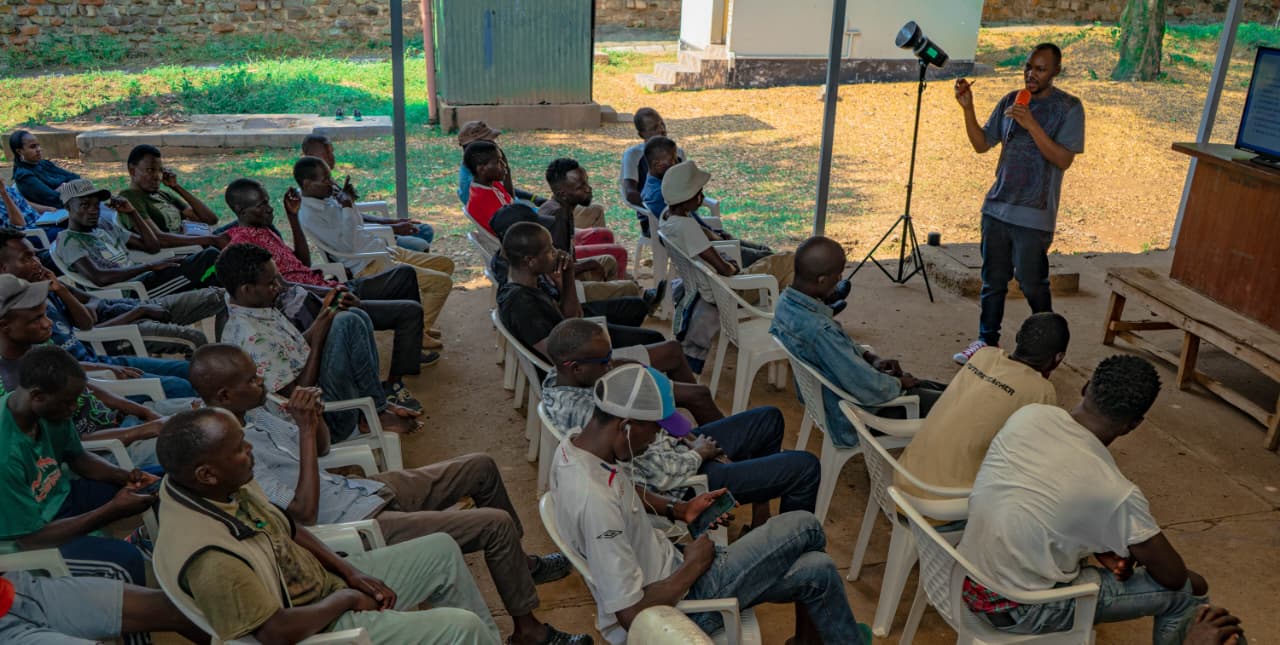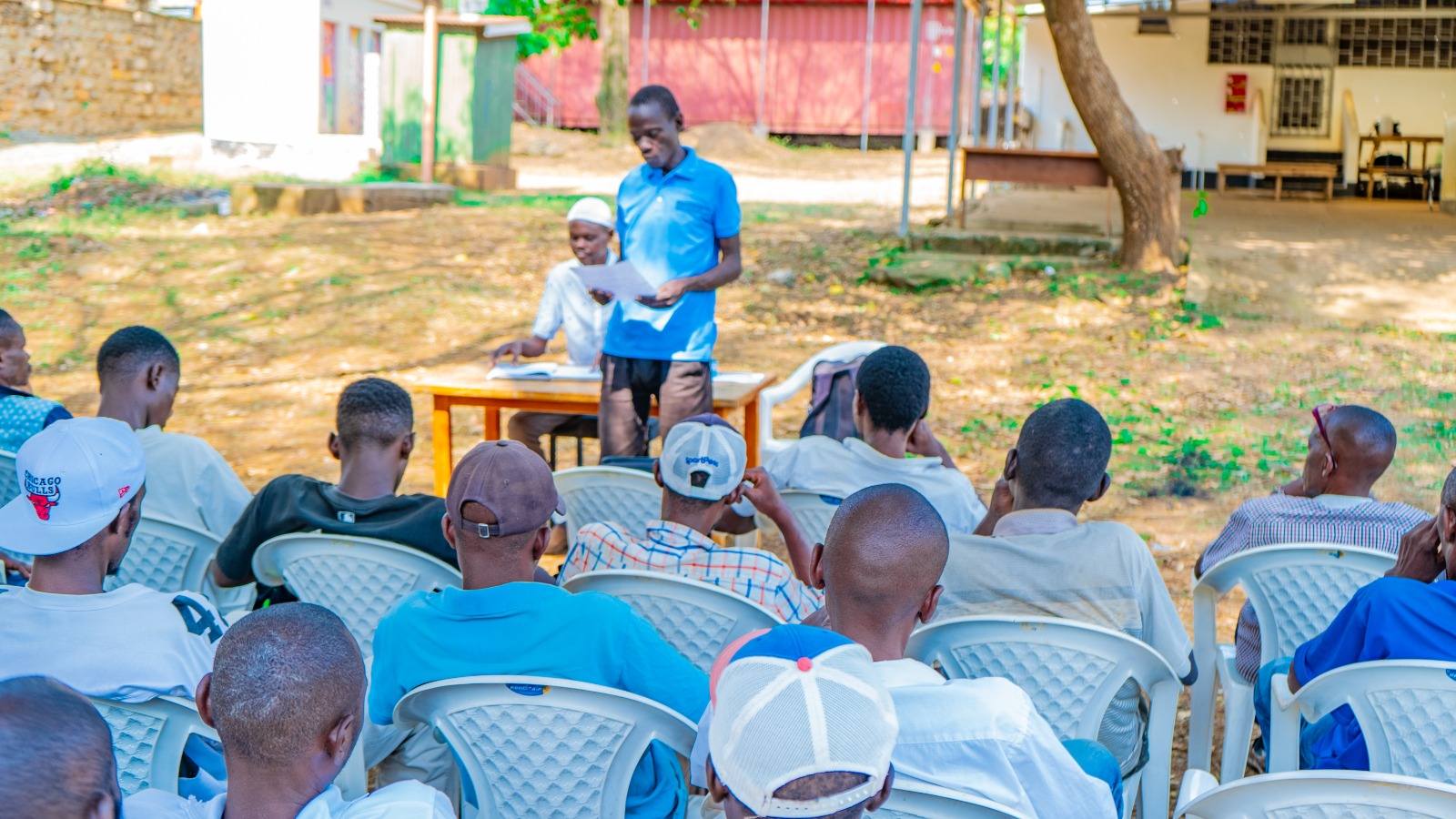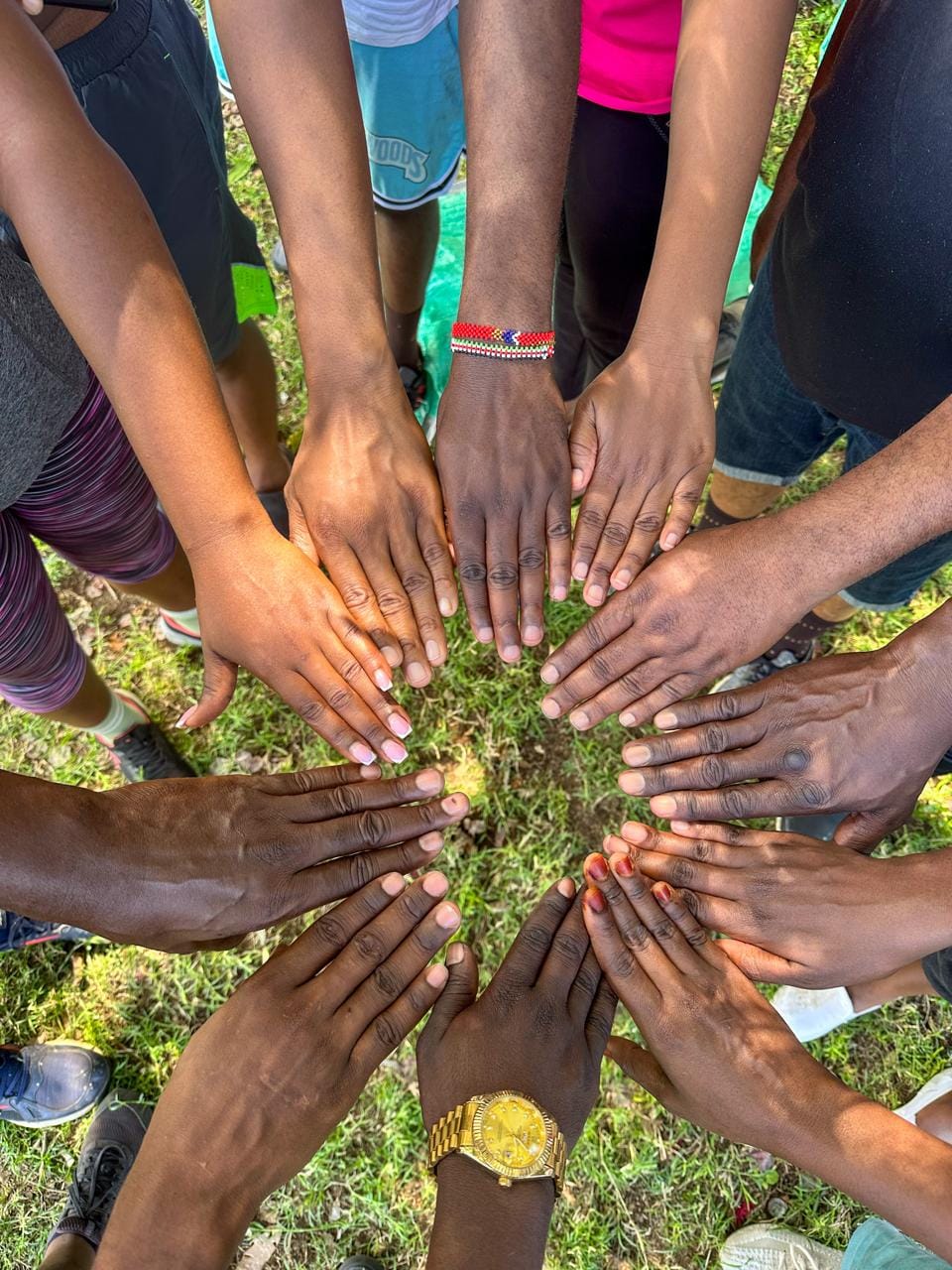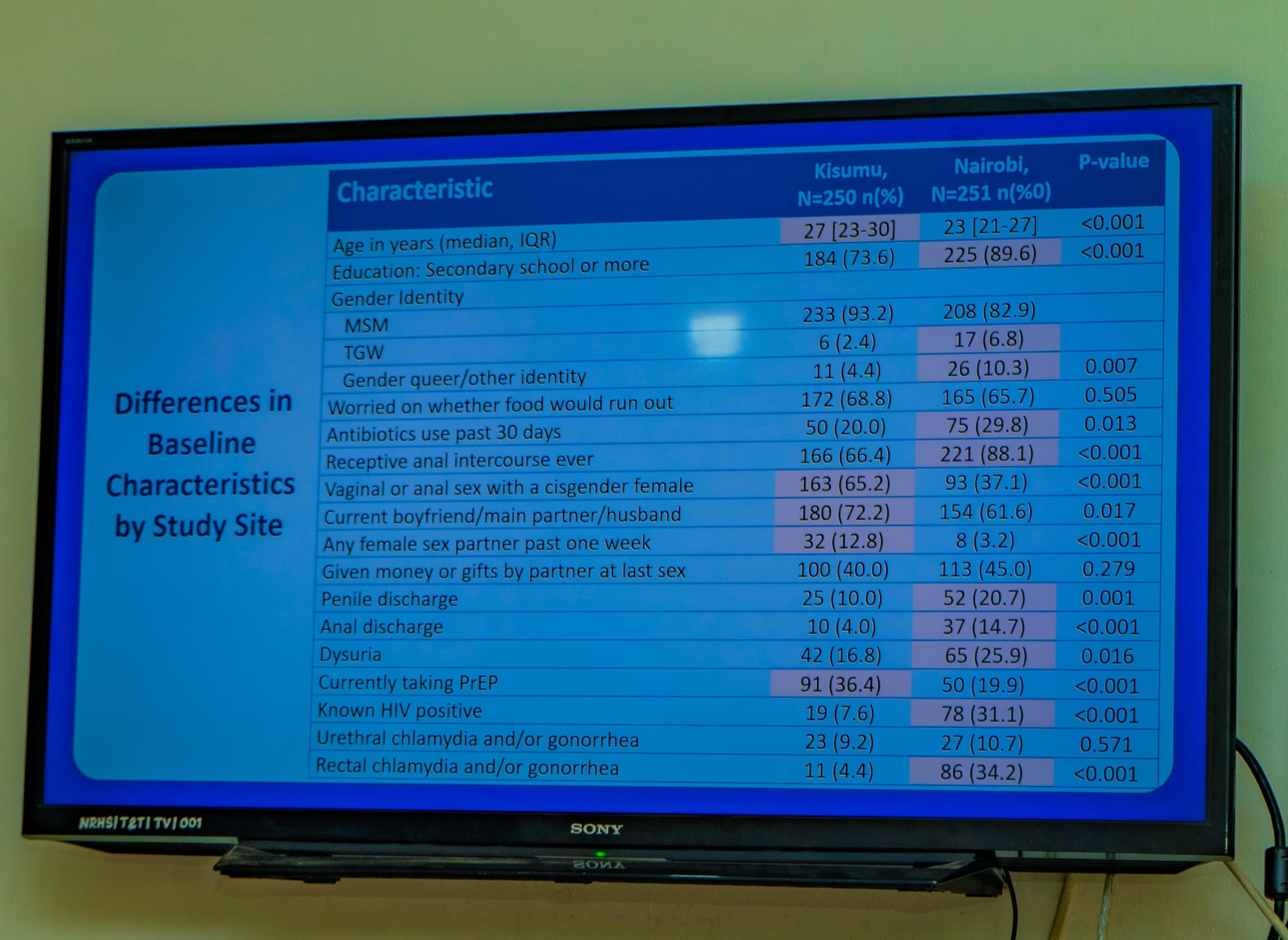· Blog · 4 min read
Mbili Pamoja Study CAB Dissemination Report Held on 25th July 2025
Mbili Pamoja Dissemination Report held on 25th July 2025 Facilitator-Felix Ochieng Note taker-Patriciah Wambua Venue-Anza Mapema Date-25th July 2025 CAB...
Mbili Pamoja Dissemination Report held on 25th July 2025
Facilitator-Felix Ochieng
Note taker-Patriciah Wambua
Venue-Anza Mapema
Date-25th July 2025
CAB Dissemination Report
The dissemination meeting with the Community Advisory Board (CAB) was held to share preliminary findings from the ongoing study on Mbili Pamoja Study. The meeting aimed to ensure community engagement, collect feedback, and discuss the relevance and interpretation of key findings.
The meeting was attended by six Community Advisory Board (CAB) members, representing a diverse range of stakeholders. These included a representative from GBMSM networks, a delegate from Shinners DICE (an MSM-friendly health facility), a religious leader, a representative from law enforcement (police), a member of the transgender community, and a representative from the local research organization (CGHR-KEMRI).
Several other invited members were unable to attend but sent their apologies due to prior commitments. These included representatives from the transport sector, female sex workers, male sex workers, and a feminist organization. All CAB members were invited via direct phone calls, and follow-up reminder text messages were sent by the CAB liaison point person to ensure wide participation in the dissemination meeting.
The session began with a brief introduction to the study topic and its objectives. The Principal Investigators (PIs) leading the research were acknowledged, and a comprehensive overview of the study was provided, including the target population, study design, and geographical scope.
The inclusion and exclusion criteria were clearly outlined, with explanations given on participant eligibility and the rationale behind these criteria. The CAB members were taken through the study procedures, with emphasis placed on the importance of each step, such as obtaining informed consent, collecting samples, and conducting behavioural assessments.
It was also noted that the study tools and informed consent forms had been translated into three languages English, Kiswahili, and Dholuo to facilitate understanding and ensure inclusivity across different linguistic groups. ACASI was also made available in all three languages to further support participant confidentiality and ease of communication.
During the presentation of results, Felix posed a thought-provoking question:
“Why do you think STI cases were reported as being more prevalent in Nairobi than in Kisumu?”
This led to a lively discussion among CAB members, with multiple participants offering various interpretations:
- Participant 1 shared, “Nairobi is cosmopolitan and has many races, so MSM would want to try out having sex with many people.”
- Participant 2 responded, “The cold weather in Nairobi makes it ‘weather for two’ as compared to Kisumu which is a bit hot.”
- Participant 3 suggested, “The high population in Nairobi makes people have sex with different people.”
- Participant 4 added, “There is a quick flow of cash in Nairobi, so sex work is more than in Kisumu.”
- Participant 5 contributed, “There is a significant age difference between the two sites because there are so many schools and colleges in Nairobi than Kisumu.”
These perspectives provided valuable context to help explain the observed differences in STI prevalence across the two study sites.
Further into the discussion, Felix presented findings of different data collection tools ACASI (Audio Computer-Assisted Self Interviewing) and CAPI (Computer-Assisted Personal Interviewing) and asked participants to share their thoughts.
- Participant 6 remarked, “ACASI elicited more sensitive information because it was more confidential and less judgemental than CAPI.”
When age-related patterns of STI prevalence were mentioned, particularly among participants aged 25–29 years, a CAB member elaborated:
- Participant 3 stated, “There were more STI among those aged 25–29 years because most have graduated, but there are no jobs, so they involve themselves in sex work.”
In contrast, Kisumu was noted to have better access to health education programs.
- Participant 8 pointed out, “MSM in Kisumu are exposed to knowledge there are programs that educate them on prevention more than in Nairobi.”
The CAB dissemination session was highly productive, with participants actively engaging with the data and providing community-grounded interpretations of the findings.



